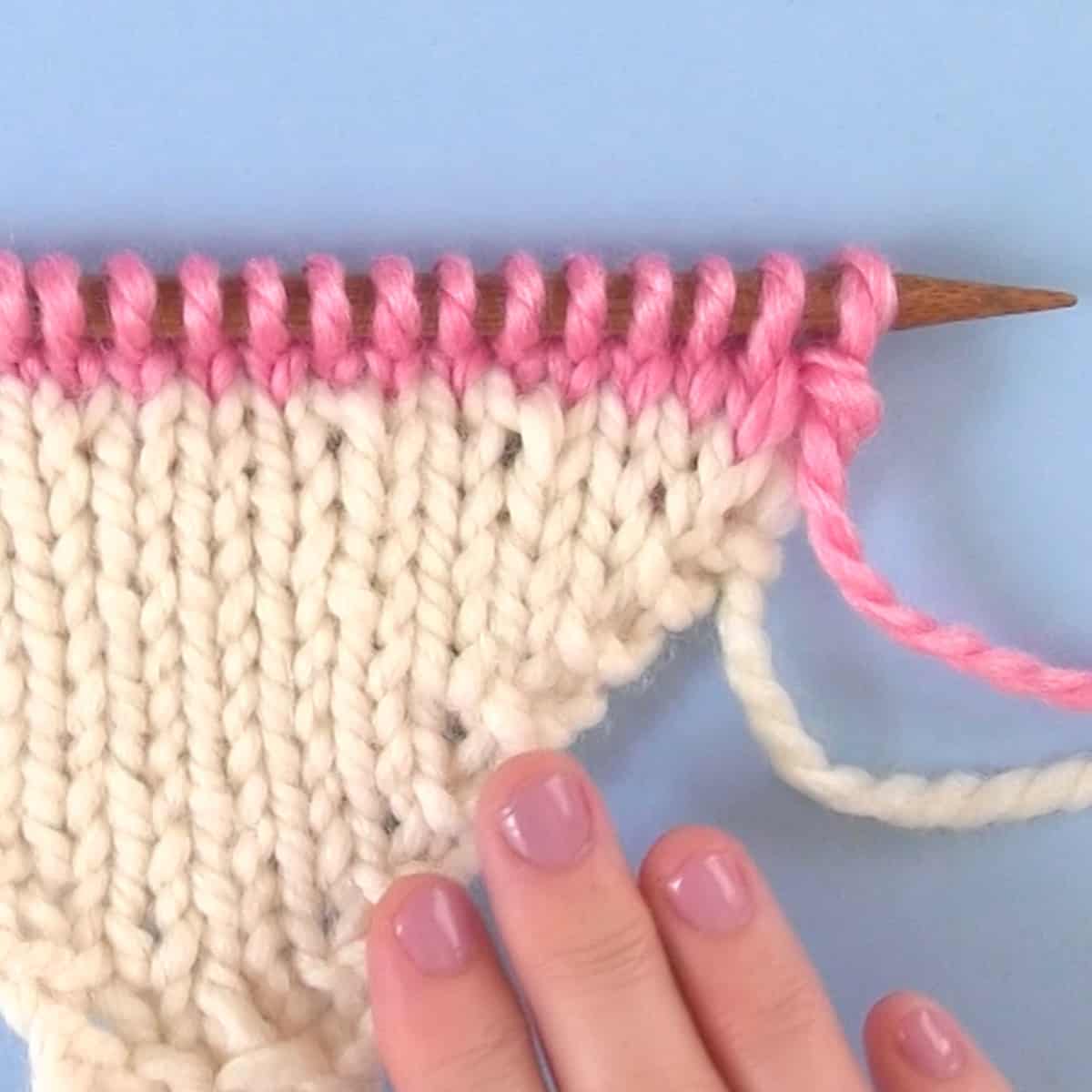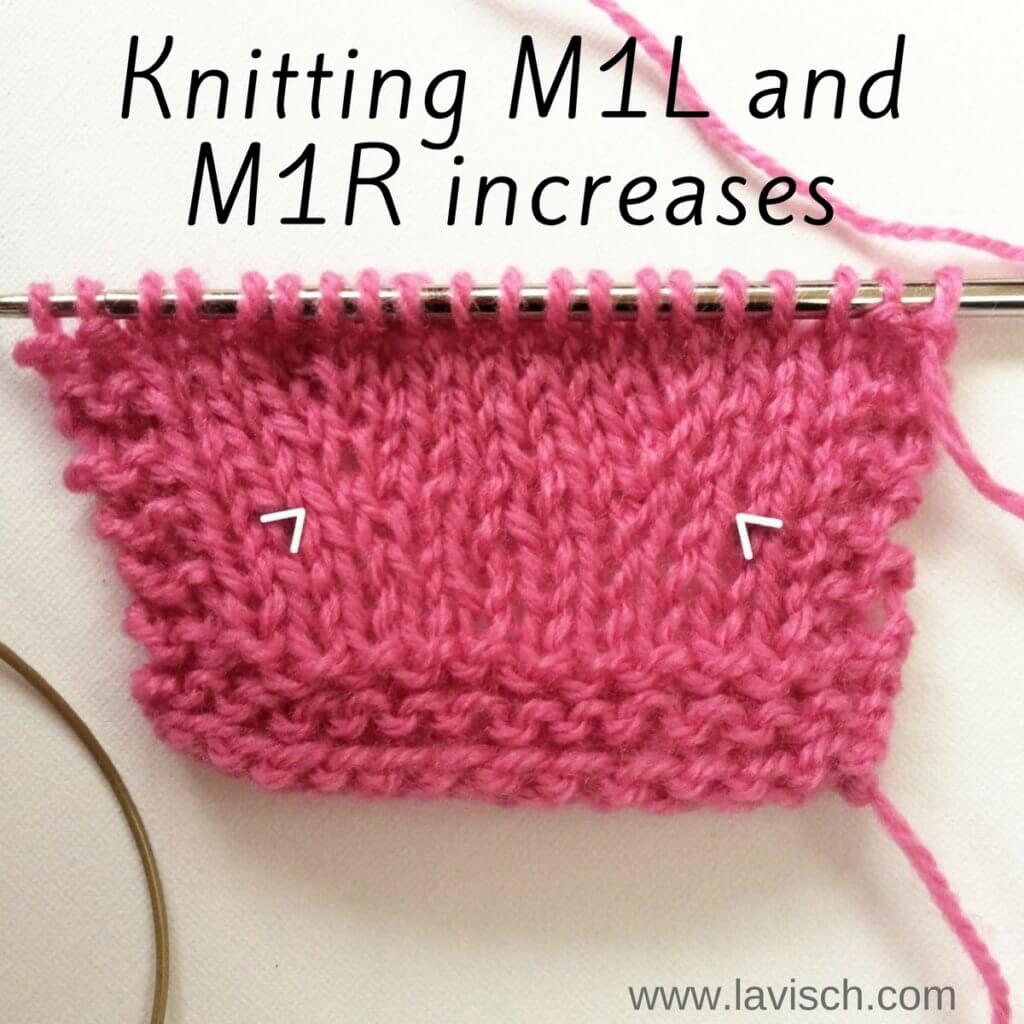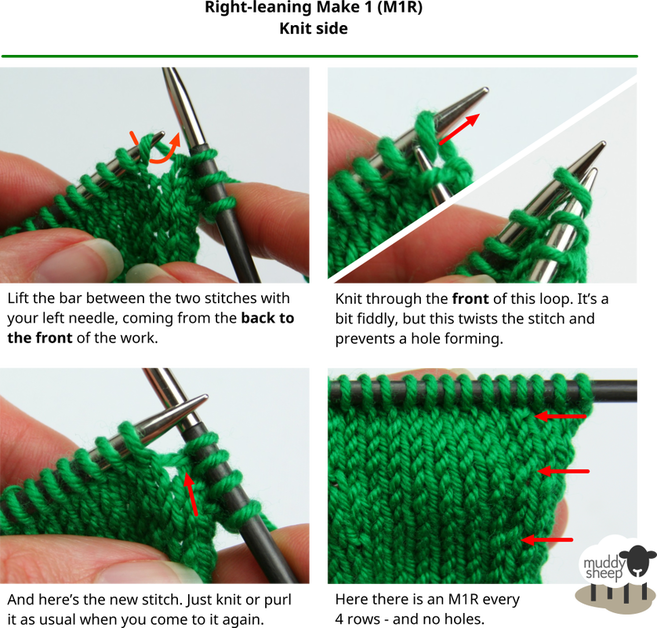M1L Knitting Increase
M1L Knitting Increase - They may seem tricky at first, but with a little practice, you'll be able to execute them with ease and shape your knitting like a pro. Typically, m1r is used on the right side of a central decrease line and m1l on the corresponding left side to create an even and harmonic widening of the fabric. In these situations, you can knit an m1r. The absolute direction of the increase doesn't matter but instead the relative direction compared to the direction you're working. The only difference is the direction of the increase. M1l is a great increase stitch for the knit side of your work. When to use make one increases. Web make 1 right (m1r) and make 1 left (m1l) knitting increases. The working yarn should be in front of your work. With your working needle, insert your tip into the back loop of the newly formed stitch, and knit it off the needle. M1l is a great increase stitch for the knit side of your work. Knitting increases can be separated into three categories: Insert your left needle into the loop you just lifted coming in from the front. Let’s learn one of the most popular ways to increase with the m1l and m1r techniques. M1r is an abbreviation used in knitting patterns. M1l is a great increase stitch for the knit side of your work. Web from bottom to top: In these situations, you can knit an m1r. Web make 1 right (m1r) and make 1 left (m1l) knitting increases. This tutorial explains an increase method that involves lifting and working into the bar between two stitches. When to use make one increases. Pull your two needles apart a bit. The m1r slants to the right, while the m1l slants to the left. Web how to increase stitches in knitting: M1l is a great increase stitch for the knit side of your work. The most basic way to increase is knitting in. They may seem tricky at first, but with a little practice, you'll be able to execute them with ease and shape your knitting like a pro. Web make 1 right (m1r) and make 1 left (m1l) knitting increases. M1l is a great increase stitch for the knit side of your work.. Knit the next stitch off your main needle. Let’s learn one of the most popular ways to increase with the m1l and m1r techniques. Web this video knitting tutorial demonstrates how to work m1r (make 1 right) and m1l (make 1 left) increases. The only difference is the direction of the increase. Knit up to the position where you want. With your working needle, insert your tip into the back loop of the newly formed stitch, and knit it off the needle. The absolute direction of the increase doesn't matter but instead the relative direction compared to the direction you're working. Let’s learn one of the most popular ways to increase with the m1l and m1r techniques. Sometimes a knitting. With your working needle, insert your tip into the back loop of the newly formed stitch, and knit it off the needle. They’re perfect for sweaters, socks, and anywhere else that you need paired or. It doesn’t leave a visible hole. Find out how to work four different increases to add stitches to your knitting. Web both the m1r and. For the majority of knitters this just happens to be to the left. This tutorial explains an increase method that involves lifting and working into the bar between two stitches. Web the m1r increase slants to the right, while the m1l slants to the left. The working yarn should be in front of your work. Web both the m1r and. They may seem tricky at first, but with a little practice, you'll be able to execute them with ease and shape your knitting like a pro. For the majority of knitters this just happens to be to the left. For more information on knit. In these situations, you can knit an m1r. These right and left leaning increases add a. Web this video knitting tutorial demonstrates how to work m1r (make 1 right) and m1l (make 1 left) increases. The only difference is the direction of the increase. M1l, k2tog, m1r, ssk, kll, k2tog tbl, kll, sspk, krl. The absolute direction of the increase doesn't matter but instead the relative direction compared to the direction you're working. Sometimes a knitting. Pull your two needles apart a bit. When to use make one increases. Web how to increase stitches in knitting: 218k views 11 years ago. Pick up the strand between two stitches coming from the front and lift it back to the left needle. It doesn’t leave a visible hole. Learn how to work the make 1 right (m1r) and make 1 left (m1l) increases. Sometimes a knitting pattern will simply ask you to m1 (aka. They may seem tricky at first, but with a little practice, you'll be able to execute them with ease and shape your knitting like a pro. Insert your left needle into the loop you just lifted coming in from the front. With your working needle, insert your tip into the back loop of the newly formed stitch, and knit it off the needle. Those that make use of the strand between two stitches, those that make use of a stitch or a stitch one row below, and those that are knit from the working yarn alone. Find out how to work four different increases to add stitches to your knitting. Typically, m1r is used on the right side of a central decrease line and m1l on the corresponding left side to create an even and harmonic widening of the fabric. This tutorial explains an increase method that involves lifting and working into the bar between two stitches. Web from bottom to top:![How to M1L and M1R Knitting increases without the confusion [+video]](https://nimble-needles.com/wp-content/uploads/2020/04/make-one-right-2-1024x684.jpg)
How to M1L and M1R Knitting increases without the confusion [+video]

Make One Knitting Increase (M1, M1L, M1R) Studio Knit

How to Knit the M1R & M1L Increase YouTube

How to knit the M1R and M1L knitting increases. A very detailed stepby

tutorial knitting M1L and M1R increases La Visch Designs

M1 M1L Knitting Increase shorts m1l knittingtutorial YouTube
![M1L Knitting & M1R Knitting Increases [2 Easy Techniques]](https://knitting.com/wp-content/uploads/2023/01/IMG_1121-1024x1024.jpg)
M1L Knitting & M1R Knitting Increases [2 Easy Techniques]

How To M1R In Knitting M1r And M1l Knitting Increase Sheep And Stitch

How to M1L and M1R Knitting increases without the confusion [+video

M1L Knit Increase Tutorial YouTube
M1L, K2Tog, M1R, Ssk, Kll, K2Tog Tbl, Kll, Sspk, Krl.
Insert Your Right Needle Through The Backloop Of That Extra Loop.
The Resulting Loop Should Lean Towards The Left.
Take Your Main Needle And Going From In Front, Insert It Under The Strand Between Your Two Stitches, And Lift Up.
Related Post: